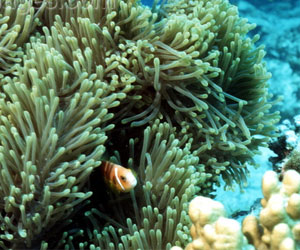According to new evidence unearthed by marine scientists, corals could quit equitorial seas as the warming trend continues unabated.

"When the climate warmed rapidly during the Last Interglacial, coral species diversity was much lower close to the Equator than at higher latitudes," said John Pandolfi, professor at the CoECRS (ARC Centre of Excellence for Coral Reef Studies) and The University of Queensland, the journal Proceedings of the National Academy of Science reported.
Pandolfi and his German colleagues found that, when sea surface temperatures warmed by about 0.7 of a degree Celsius during the interglacial warm period, it was enough to drive many species of coral out of equatorial waters up to 10 degrees of latitude on either side of the equator, according to CoECRS.
"Our results suggest that the poleward range expansions of reef corals occurring with intensified global warming today may soon be followed by equatorial range retractions," said Pandolfi.
What concerns the scientists is that the planet has already warmed by 0.7 of a degree since the start of the industrial age - a similar amount to the last interglacial - and while the corals have not yet abandoned equatorial waters, modern equatorial diversity is lower compared to adjacent latitudes north and south.
"If this is the case, it has serious implications for the nations of the Coral Triangle, such as Indonesia and the Philippines, where tens of millions of people rely upon the oceans for their livelihoods and food," added Pandolfi.
Advertisement










